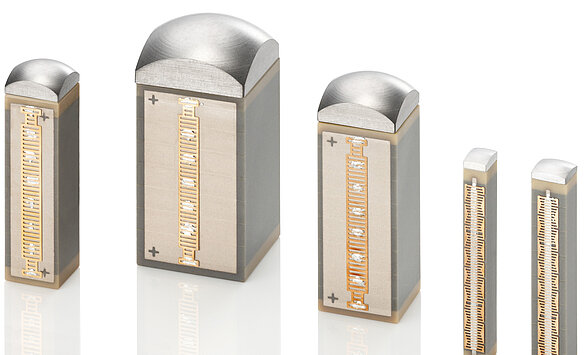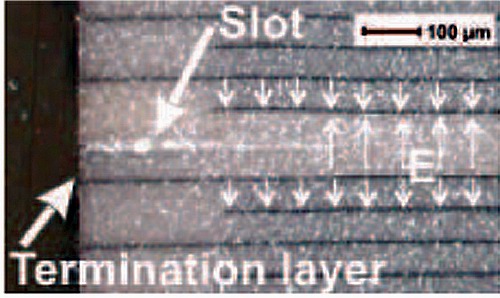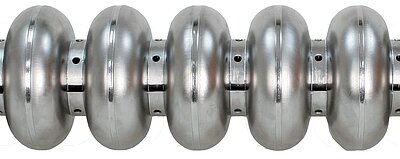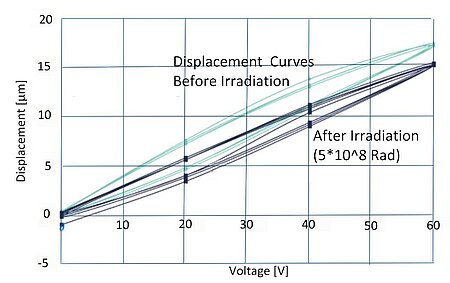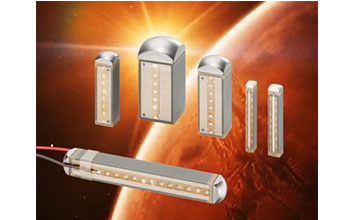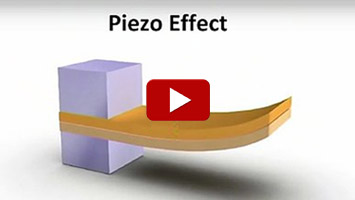Fermilab (FNAL) is contributing to the SLAC Linac Coherent Light Source II (LCLS-II) project with superconducting radio-frequency (SRF) accelerator technology and cryogenics. The LCLS-II will produce a high-power free-electron laser for research from nano/bio-technology to materials engineering. The SRF technology will increase the pulse rate from 120Hz in the current LCLS to 1MHz in the LCLS-II.
SRF cavities can store energy with extremely low losses. In order to keep their resonant frequencies exactly in tune, a combination of mechanical coarse tuners (slow) and fine piezomechanical tuners (fast) are implemented. Piezo actuators provide motion based on solid state effects. Reasons for choosing piezo actuators are low-energy requirements, high force output, sub-millisecond responsiveness, and virtually unlimited positional resolution. Piezo actuators are not subject to wear such as traditional mechanical actuators and if designed right, will provide billions of cycles of precision motion.
The reliability requirements for SRF cavity tuners are very high. They need to work over a period of 20 years in a harsh environment: cryogenic temperatures, vacuum, and radiation.
The latest designs for the LCLS II project were run through a number of accelerated lifetime tests. The piezoelectric fine-tuners provided by PI are based on the experience gathered with many previous applications and similar projects. Key to avoiding detrimental forces on the piezo ceramics is a mechanical housing design that keeps tensile and shear forces away from the ceramics.
PICMA® ceramic encapsulated piezo stacks are used inside the mechanical protective housing. Compared to traditional polymer-coated actuators, the PICMA design has a number of improvements – no outgassing, no risk of dielectric breakdown of the coating in the presence of humidity. The patented design also prevents uncontrolled expansion of micro cracks, important in dynamic applications.
PICMA® actuators have been run through many life tests in the past, for example, they survived 100 billion cycles with no failures before being employed on the Mars mission.
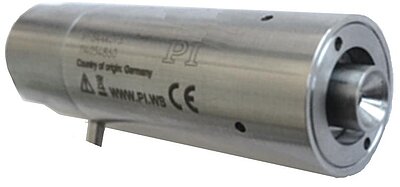
Radiation Testing
The piezo-stacks were irradiated with 2MeV gamma up to level 5*10^8 Rad. Accelerated tests were run at room temperature. Before and after the irradiation, the displacement vs. voltage curves were taken along with several other operating parameters. The actuators passed all tests.
It is expected that the accelerated tests in air will pose a significantly higher stress on the actuators than the real operational conditions, where during the lifetime of the accelerator, a dose of ~2-4*10^8 Rad will not be exceeded.
Special thanks to Dr. Yuriy M. Pischalnikov from FNAL for working with PI on this project.
Detailed information on the lifetime tests is available in this paper: RELIABILITY OF THE LCLS II SRF CAVITY TUNER
Blog Categories
- Aero-Space
- Air Bearing Stages, Components, Systems
- Astronomy
- Automation, Nano-Automation
- Beamline Instrumentation
- Bio-Medical
- Hexapods
- Imaging & Microscopy
- Laser Machining, Processing
- Linear Actuators
- Linear Motor, Positioning System
- Metrology
- Microscopy
- Motorized Precision Positioners
- Multi-Axis Motion
- Nanopositioning
- Photonics
- Piezo Actuators, Motors
- Piezo Mechanics
- Piezo Transducers / Sensors
- Precision Machining
- Semicon
- Software Tools
- UHV Positioning Stage
- Voice Coil Linear Actuator
- X-Ray Spectroscopy

